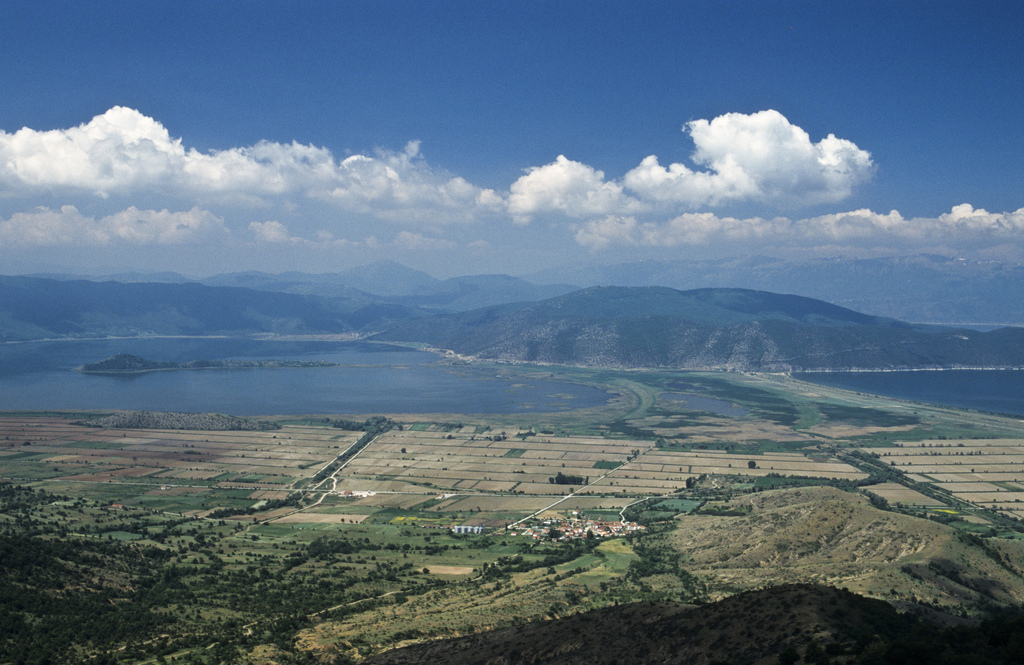14th February 2017: A historic day for transboundary Prespa
Monday, 20 March 2017
Environmental NGOs urge the three littoral countries and the European Union to move quickly ahead with the operation of the transboundary Prespa Park
Last Tuesday, 14th February 2017, was a historic day for Greece’s policy record in the field of nature conservation and sustainable development. The parliament of the country ratified the international ‘Agreement for the Protection and Sustainable Development of the Prespa Park Area’ by an overwhelming majority. The agreement was originally signed on 2nd February 2010 by the Ministers of Environment of the 3 littoral countries and the EU Commissioner for the Environment, but Greece did not ratify it for the 7 years that ensued. Nonetheless, it has now done so and the agreement is free to enter into force and be implemented.
 © A. Bonetti / WWF Ελλάς
© A. Bonetti / WWF Ελλάς
This development is pivotal for Greece, as it is the first time that the country has gone ahead with the official establishment of a system of permanent collaboration in a border area that is protected for its outstanding biodiversity. The case of Prespa provides a compelling instance of Greece overcoming its economic malaise and overall insecurity to boldly visualise and build the future of an area which is small in size and population but intensely symbolic. The participation of the EU as a contracting party in the ‘Prespa Agreement’ reconfirms exactly how important the region is from an environmental, geopolitical and symbolic viewpoint.
Besides its importance for Prespa and Greece, the implementation of the 2010 agreement will definitely be a milestone for SE Europe too. In 2000 the declaration on the establishment of the transboundary Prespa Park relayed a message of peace and co-operation between the peoples of the region, following the years of great upheavals and wars of the 1990s. In today’s world of insecurity, introversion and new nationalisms, the implementation of the international agreement for the Prespa Park takes on an optimistic symbolism once again, as it will cultivate friendship and peaceful coexistence for the sustainable prosperity of local societies on the basis of nature conservation. It is thus reconfirmed that environmental protection is not a restriction, but rather an opportunity and a means for sustainable development; it is also reiterated that the way forward is not isolationism and hostility, but bridging differences and building synergies for the benefit of all.
These are also the ideas behind the European Green Belt, on which the Prespa basin lies. The EuroNatur Foundation - as chair of the European Green Belt Association - congratulates the Greek Parliament on this important decision and calls on the three littoral countries sharing the Prespa Park to promptly implement the agreement.
The undersigned 5 environmental organisations - EuroNatur, KORA, MES, PPNEA and the SPP - joyfully acknowledge this day, which marks the beginning of a new and more mature phase in transboundary co-operation in the Prespa basin. Its main feature will hopefully be the operation of new permanent and official joint institutions with the participation of local authorities, protected area authorities and environmental NGOs alongside the state authorities, i.e. all the significant stakeholders who believe in the effectiveness of this model of local and transboundary governance. We firmly pledge our unequivocal support for this progressive and forward-looking process.
For more information:
- Katharina Grund, EuroNatur (e-mail: This email address is being protected from spambots. You need JavaScript enabled to view it.; t:+49 7732 9272 10)
- Manuela von Arx, KORA (e-mail: This email address is being protected from spambots. You need JavaScript enabled to view it.; t: +41 31 951 70 40)
- Daniela Zaec, MES (e-mail: This email address is being protected from spambots. You need JavaScript enabled to view it.; t:+389 78 335 854)
- Vivi Roumeliotou, SPP (e-mail: This email address is being protected from spambots. You need JavaScript enabled to view it.; t:+30 23850 51211)
- Klaudja Koci, PPNEA (e-mail: This email address is being protected from spambots. You need JavaScript enabled to view it.; t: +355 4 2256 257)
Editor’s notes
- The Ramsar Convention’s World Wetlands Day on 2nd February has always been an important date for the Prespa lakes: The transboundary Prespa Park was established on 2nd February 2000 with a joint declaration by the Prime Ministers of the three countries. The ‘International Agreement for the Protection and Sustainable Development of the Prespa Park’ was signed on 2nd February 2010 by the three countries which share the lakes, and the EU Commissioner for the Environment. This is in fact one of the most significant agreements for the comprehensive protection of a catchment basin and Ramsar wetlands in Southeast Europe, aiming at the conservation of the natural environment and sustainable development of the region through a standing mechanism of transboundary co-operation.
- PrespaNet is an environmental NGO network, founded in February 2013 , consisting of MES (Macedonian Ecological Society) based in Skopje, the SPP (the Society for the Protection of Prespa) based in Agios Germanos, Prespa, and PPNEA (Protection and Preservation of the Natural Environment in Albania) based in Tirana. PrespaNet strives to protect the natural and cultural heritage of the transboundary lakes basin for the sustainable benefit of both people and wildlife, now and in the future.
- The European Green Belt extends for over 12,500 km as a corridor of extraordinary biodiversity along the former border between East and West, between the Barents and the Black Seas. This nature conservation initiative, currently the most ambitious in Europe, intends to transform the former Iron Curtain into a ‘line of life’, and thus make a substantial contribution to the preservation of the green infrastructure of the continent. Along the Green Belt romantic forests, marshlands and species-rich cultural terrain, as well as wild mountain and river landscapes, are laced together in a way that can be found hardly anywhere else in Europe. The initiative connects eight bio-geographic regions and 24 states, and extends in four regional sections across the continent http://www.europeangreenbelt.org. Since 2011, EuroNatur (Regional Co-ordinator for the Balkan Green Belt) and BUND (Regional Co-ordinator for the Central European Green Belt) together with an international co-ordination group have been collaborating on the initiative. The “European Green Belt Association” was established in 2014, representing the European Green Belt initiative and taking on the co-ordinating role. Both governmental and non-governmental actors work together in the association.
Share this



